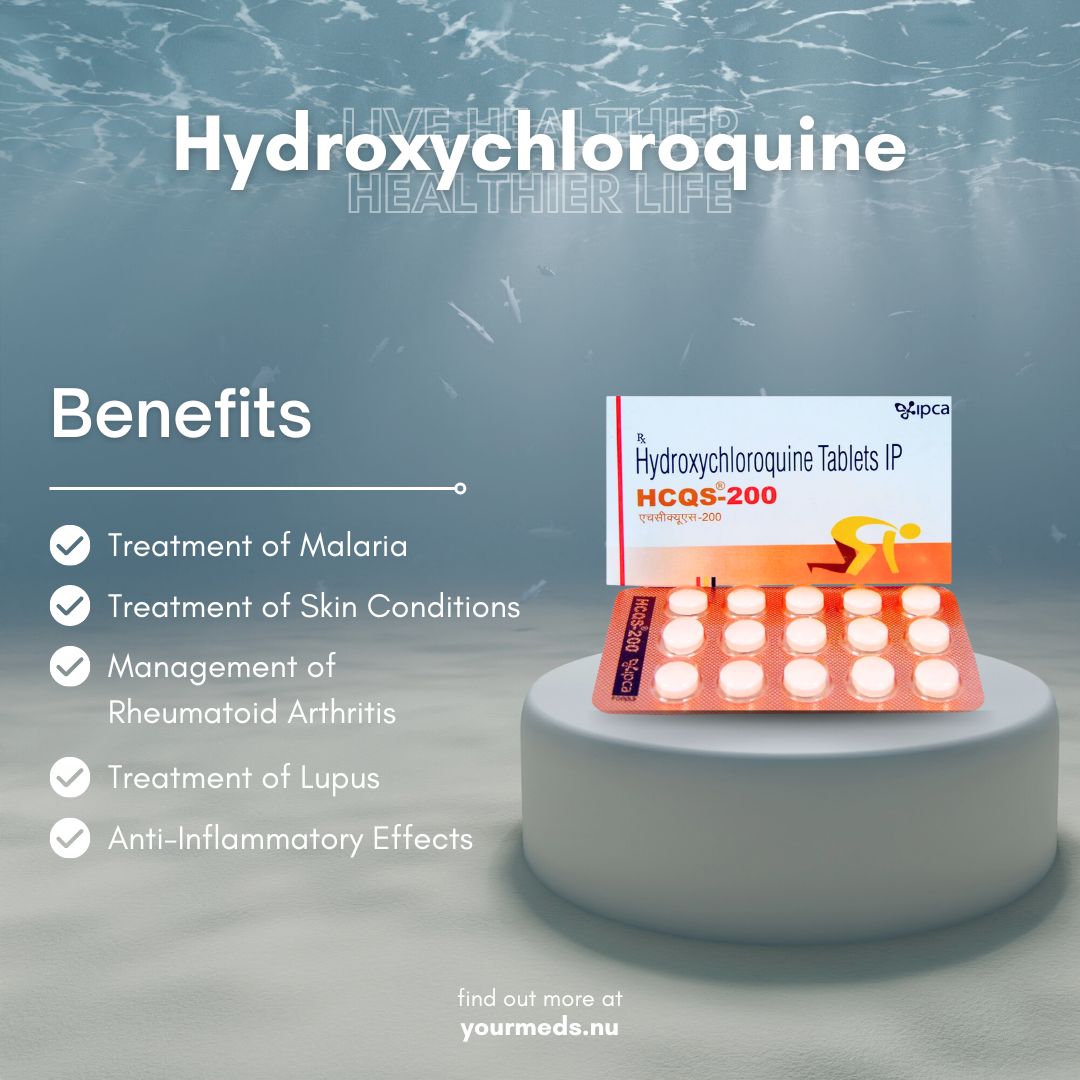
14 Sep The Complete Guide to Hydroxychloroquine: Benefits, Dosage, and Key Considerations
Hydroxychloroquine (HCQ) has been widely used for decades as a treatment for malaria and certain autoimmune diseases. More recently, it has gained attention for its potential to provide protection against spike proteins and viral shedding, particularly in relation to COVID-19. This article explores the various uses of Hydroxychloroquine, its benefits, dosage recommendations, and essential precautions to keep in mind.
Product Overview: Hydroxychloroquine 200mg Tablets – 20 Count Strip
Hydroxychloroquine 200mg Tablets are formulated to help protect against spike protein shedding and are widely used for anti-parasitic, anti-malaria, and autoimmune purposes. Each strip contains 20 tablets, conveniently packed to reduce shipping costs.
Applications and Benefits of Hydroxychloroquine
Hydroxychloroquine offers a range of therapeutic benefits, making it useful in various medical conditions:
1. Spike Protein and Shedding Protection
Hydroxychloroquine is commonly used by individuals seeking protection against spike proteins and viral shedding, especially in the context of COVID-19. Although this use is not universally recognized, many individuals report positive outcomes.
2. Anti-Malaria
Originally developed to treat and prevent malaria, Hydroxychloroquine is still widely used in regions where malaria is prevalent.
3. Autoimmune Diseases
Hydroxychloroquine is effective in managing autoimmune conditions, such as:
• Rheumatoid Arthritis: Reduces pain, swelling, and joint damage.
• Lupus: Helps manage flares and prevent organ damage.
• Sjogren’s Syndrome: Relieves symptoms of dry eyes and mouth.
• Juvenile Idiopathic Arthritis: Used in children to control inflammation.
4. Parasitic Infections
Hydroxychloroquine has been employed in treating certain parasitic infections, making it a useful tool in anti-parasitic cleanses.
5. Inflammatory Conditions
The drug’s anti-inflammatory properties make it valuable for a wide range of inflammatory diseases, such as sarcoidosis and porphyria cutanea tarda.
Dosage and Administration
Hydroxychloroquine is typically taken orally, and the dosage may vary depending on the condition being treated. Here are some general guidelines:
• For Spike Protein and Shedding Protection:
• Adults: 200 mg once daily.
• Alternative Regimen: Some follow a 400 mg dose every two weeks.
• For Autoimmune Conditions (e.g., Rheumatoid Arthritis, Lupus):
• Typically, 200–400 mg daily, depending on the severity of symptoms.
• For Malaria Prevention:
• 400 mg weekly, starting two weeks before travel to malaria-prone areas and continuing for four weeks after leaving.
Always consult your healthcare provider to determine the best dosage for your specific needs.
Clinical Trials and Research
Hydroxychloroquine has been the subject of various clinical studies, particularly in relation to its role in COVID-19. Some notable studies include:
• Boulware et al. (2020): Demonstrated the efficacy of Hydroxychloroquine as a post-exposure prophylaxis for COVID-19.
• Gautret et al. (2020): Suggested a reduction in viral load in COVID-19 patients treated with Hydroxychloroquine.
• Million et al. (2020): Indicated improved outcomes in early treatment of COVID-19 patients with Hydroxychloroquine.
Precautions and Monitoring
Certain health conditions require caution when considering Hydroxychloroquine. Here are key considerations:
1. Heart Conditions
Hydroxychloroquine can exacerbate heart conditions such as:
• Arrhythmias (irregular heartbeats)
• Cardiomyopathy
• Prolonged QT interval, which can lead to severe cardiac events.
2. Retinal Problems
Long-term use may lead to retinopathy, causing permanent damage to the retina. Regular eye exams are crucial for those on long-term treatment.
3. Liver and Kidney Disease
Hydroxychloroquine is metabolized by the liver and excreted by the kidneys. Individuals with liver or kidney disease should use the drug under strict medical supervision, and regular blood tests are recommended to monitor organ function.
4. G6PD Deficiency
Those with glucose-6-phosphate dehydrogenase (G6PD) deficiency are at risk of hemolysis (destruction of red blood cells) when taking Hydroxychloroquine.
5. Diabetes
Hydroxychloroquine can impact blood sugar levels, so individuals with diabetes should monitor their glucose closely.
6. Psoriasis and Porphyria
Hydroxychloroquine may worsen conditions like psoriasis and porphyria, and its use is typically contraindicated for individuals with these diseases.
7. Myasthenia Gravis
The medication may worsen symptoms of myasthenia gravis, a condition that causes muscle weakness.
Side Effects of Hydroxychloroquine
While Hydroxychloroquine is generally well-tolerated, it does come with potential side effects, especially with long-term use:
Common Side Effects:
• Nausea or upset stomach
• Headache
• Dizziness
• Loss of appetite
Serious Side Effects:
• Vision problems: Long-term use can lead to retinal damage and vision loss.
• Heart issues: Can cause or worsen heart rhythm problems.
• Muscle weakness: Some people experience muscle weakness after extended use.
• Severe allergic reactions: Swelling of the face or throat, though rare.
Supporting Your Health While Taking Hydroxychloroquine
When taking any long-term medication like Hydroxychloroquine, it’s essential to support your body with proper supplements and monitoring:
Probiotics and Digestive Enzymes:
To counteract any potential gastrointestinal upset, it’s advisable to take probiotics and digestive enzymes. These can help maintain a healthy gut environment while taking Hydroxychloroquine.
Regular Monitoring:
• Eye exams to check for retinal damage.
• Blood tests to monitor liver and kidney function.
• ECGs to monitor heart health, particularly in those with existing heart conditions.
Extended Knowledge and Historical Uses
Hydroxychloroquine has a long history of use, originally derived from chloroquine and primarily used as an anti-malarial. Its ability to modulate the immune system has made it effective in treating autoimmune diseases. More recently, it has been studied for its potential role in COVID-19 and other viral infections, as well as conditions like diabetes and heart disease.
Consult a Healthcare Provider
Always consult a healthcare provider before starting Hydroxychloroquine, especially if you have any pre-existing conditions or concerns about potential interactions.
Conclusion: Is Hydroxychloroquine Right for You?
Hydroxychloroquine is a versatile and powerful medication that can help with conditions ranging from malaria prevention to autoimmune disease management. It’s crucial to understand the correct dosage, potential side effects, and when to seek medical guidance before beginning treatment.





No Comments